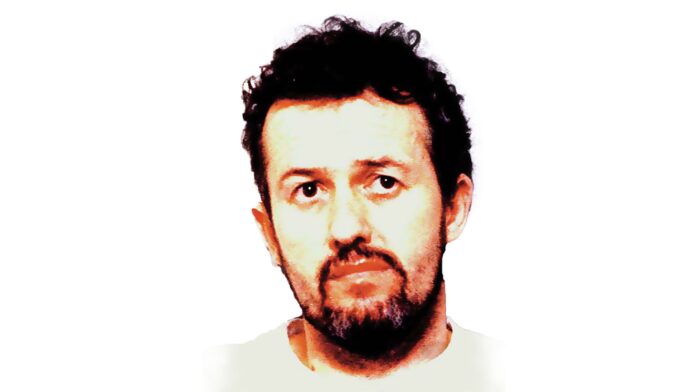Manchester City senior management were aware of rumours and concerns about Barry Bennell’s conduct in the early 1980s but it did not investigate these rumours and it shoukld have done.
This is just one of the conclusions that has come out the Sheldon report published today which looked at child sexual abuse in football between 1970-2005.
Barry Bennell is described in the report as one of the most notorious of all the perpetrators of child sexual abuse.
He was described by the judge at his criminal trial in February 2018 as the “devil incarnate”.
Bennell sexually abused large numbers of boys throughout the 1970s and 1980s and into the early 1990s. During the time when he committed this abuse, Bennell was involved with a number of professional clubs: Manchester City,Crewe Alexandra and Stoke City.
The report found that During Bennell’s association with Manchester City, the Club was not aware of allegations of abuse by Bennell.
However, senior management of the Club were made aware of rumours about Bennell and concerns about his conduct. Some members of staff appear to have referred to Bennell as a “kiddy fiddler”. Members of staff were also aware that boys were staying overnight at Bennell’s house – something that some found suspicious.
The Club did not investigate the rumours about Bennell: it should have done.
The Club should also have examined the circumstances in which boys were
staying overnight with Bennell. These were not usual arrangements, even at that time.
The fact that parents allowed their children to stay with Bennell did not mean that the
Club could not, or should not, have looked further into these arrangements.
The report found that it was clear that a considerable amount of sexual abuse of children took place during this period.
The abuse shattered the trust that survivors had in the abuser, and in those
with the responsibility in football to keep children safe. The abuse had a devastating
impact on the lives of many of the survivors, as well as their families and loved ones.
The abusers used the cloak of respectability and credibility that came through their association with professional clubs to gain access to boys and lull the boys and their parents into a sense of security.
Abusers were manipulative says the report.
They used elaborate grooming tactics, and their abuse was mainly conducted in private – whether in the abuser’s homes, in their cars, in secluded rooms at training grounds, or in hotel rooms – not in the sight or presenceof other adults.”
“Abusers frequently worked without supervision or oversight: they had
opportunities to spend time alone with young players and, as part of their roles as
coaches or trainers, or even scouts, they were able to develop exclusive relationships
with young players.”
Generally the report found that significant institutional failings” by the Football Association meant it “did not do enough to keep children safe”
It found the FA was “too slow” to have sufficient protection measures in place between October 1995 and May 2000.It said there was no evidence the FA knew of a problem before summer 1995.
Mark Bullingham, chief executive of the Football Association, said: “I am proud to lead the FA and know the positive impact that football can have throughout the country. Getting people active, learning the power of teamwork and having fun together. As a youth team coach, I see that impact every week.
“However, today is a dark day for the beautiful game. One in which we must acknowledge the mistakes of the past and ensure that we do everything possible to prevent them being repeated.
“Earlier today, Clive Sheldon QC published his independent report into allegations of non-recent child sexual abuse in football. This report is a very important piece of work and was commissioned by the FA after Survivors bravely came forward in November 2016.
“I’ve had the privilege of meeting some Survivors, whose courage is inspirational and whose stories are incredibly moving. They will never forget what has happened to them, and this report will now ensure the game will never forget either.
“So, today I address the Survivors directly, as the people that matter most. To them I say:
“You have the deepest admiration of the FA. Your bravery throughout this process has been incredible. Your voices have been so powerful.
“I’d like to start by giving a heartfelt apology on behalf of the Football Association and the English game to all Survivors, that this happened to you within football. No child should ever have experienced the abuse you did.
“What you went through was horrific and it is deeply upsetting that more was not done by the game at the time, to give you the protection you deserved.
“There are consistent features in this review. Of bystanders who didn’t do anything. Of children that weren’t believed. Of the damage that has been caused.
“There’s a famous quote that says: ‘For evil to flourish simply requires that good people do nothing’. There are too many examples of that throughout this report. There is no excuse.
“While we recognise how courageous it was for you to come forward, it’s important to recognise that good has come from this bravery.
“You have been trailblazers in shining a spotlight on the horrifying abuse that you suffered while playing the game you loved. Without your testimonies, we would not have this understanding, and I would personally like to thank you all for your involvement, contributions and your honesty.
“Most importantly, detailing these crimes and the manipulative behaviour behind them, will help to ensure that abuse is less likely to happen in the future.
“You have also had a direct impact on investigations. There are a number of individuals who are now serving prison sentences. Barry Bennell is now in prison for life, Bob Higgins and George Ormond are currently serving 24 and 20-year sentences respectively, and a number of other individuals have also been investigated, charged and, where appropriate, banned from football.
“Today, the report details some of your accounts together. However, I apologise for the fact that your stories were not heard a long time ago. You deserved to be heard and to be given answers, a long time before today. An investigation should have been done when accusations were first made in the 1990s.
“And, to English football, I say. This has to be a critical moment for us. We must do everything we can to ensure that we learn the lessons, and never see a repeat of this abuse.
“I would also like to thank Clive Sheldon QC and his team for delivering a thorough report – and for his dedication to this important piece of work, which involved interviewing hundreds of people. He had to navigate around criminal proceedings and court cases which resulted in multiple delays.
“The result is a full report that is more than 700 pages long. It details accounts of the horrendous and traumatic abuse that Survivors suffered when they were children. It is clear they were let down by the game, the authorities and society as a whole. We all failed to protect them.
“They suffered these terrible experiences in their formative years and were abused by people that they and their families trusted. This is a gut-wrenching breach of trust. The report outlines the cruelly calculated nature and sheer evil of these perpetrators. They often groomed families as well as victims and committed their crimes over long periods of time.
“One of our main aims when we commissioned this review was to understand what the game knew. The clear answer is ‘not enough’. There is simply no excuse for this. The game failed to provide the support these children needed. It is shocking and unthinkable that the right questions were not being asked at that time.
“We also wanted to know what more should have done by the FA and football generally. The report is clear that safeguarding risks were not understood prior to the mid 90s by either sports or society. However, more should have been done, more quickly, after sexual abuse cases came to light. As with most sports in this country, the FA was too slow to act.
“The report recognises the FA made progress after 2000 and that the Independent Football Commission reviewed safeguarding standards in 2005, concluding that the FA’s achievement in this area was impressive. However, it is clearly unacceptable that the correct protocols were not in place before then.
“It is troubling, yet important, to see exactly where the game has failed in the past, and to check and challenge where we are now. Thankfully there have been huge strides in safeguarding in sport and football over the past two decades, and the report recognises that English football is in a very different place today.
“Our policies, standards and practices are recognised as industry leading. For example, we have trained over 800,000 people on our safeguarding courses.
“Safeguarding practices must continuously evolve and we’re fully committed to doing everything possible to ensure the culture of the modern game has safeguarding at its core. We can still improve and will strive to do so. To be clear, we accept Clive Sheldon’s recommendations in full.
“The report also recognises that sport governing bodies have limited jurisdiction in certain areas, which should be discussed with Government and other sports bodies. We agree. We want to work with the authorities, organisations like the NSPCC Child Protection In Sport Unit, and other sports to maximise the opportunities to collaborate and ensure that together we offer the safest possible environment across all of sport.
“However, we haven’t been waiting for the publication of this report to act. Since the Survivors came forward in 2016, we have brought in new processes in grassroots football which set standards that every county must meet, and that are independently assessed. We’ve investigated anyone brought to our attention by the review team, working in conjunction with Operation Hydrant and we’ve taken action where necessary.
“We want the publication of this report to reignite the conversation about the importance of safeguarding, across all areas of society.
“Let’s be clear. While football is in a very different place, threats to children still exist in society. We urge parents and carers to be aware of today’s risks – particularly in the online space.
“Some people who read this report might conclude that much of the abuse in the 70s, 80s and 90s simply wouldn’t be possible today due to different circumstances and practices. That is to miss a key point. The perpetrators were able to get away with their crimes, often over many years, due to widespread ignorance about the threat that they posed at that time.
“This report should serve as a reminder of the importance for everyone to be aware of current risks. It is clear that child sexual abusers are both manipulative and calculating, and they will adapt their methods over time. We too must adapt and be eternally vigilant, to prevent abuse in any form, in any part of society. We owe that both to the Survivors of abuse and to future generations.
“To give you an understanding of the scale of current abuse in society, in November last year, the NSPCC outlined that 1,220 online grooming offences had occurred in the previous three months.
“For anyone with concerns in football, we have systems in place to provide the necessary support and answers. This includes guidance and support for parents who want to be reassured that their child is playing football in a safe environment.
“We are immensely proud of the valuable work that our safeguarding team does, year in and year out. We employ 26 experienced colleagues who work exclusively on safeguarding for the FA and have a large network of either paid or voluntary safeguarding and welfare officers.
“Our policies, standards, training, checks and procedures for managing referrals and concerns, alongside the independent assessments of all Premier League clubs, EFL clubs and County FAs, have consistently received a high level of confidence from the NSPCC Child Protection in Sport Unit. We are committed to continuing to work with them to ensure we always meet the highest standards.
“To conclude. Football matters. It can have such a positive impact on players of all ages and our country overall. However, nothing matters more than making sure it is safe for everyone, especially all of our children, to play the game they love.
“This report shows that didn’t happen in the 70s, 80s and 90s. As a game we failed to prevent this abuse. We all have to learn from that, in order to protect future generations. We will continue to keep safeguarding children at the heart of everything we do. The past must never be forgotten, and we must never be complacent.”







